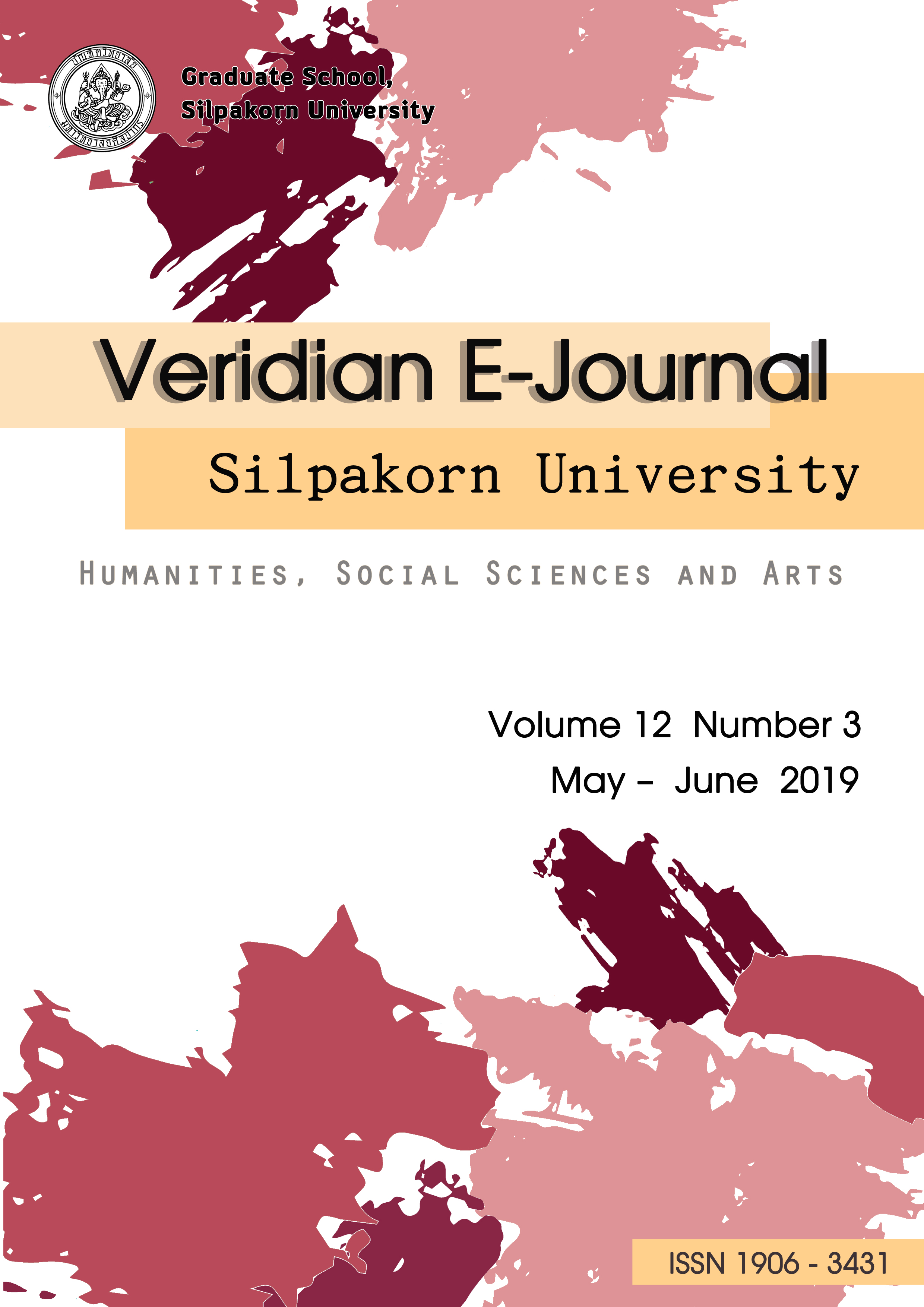การพัฒนารูปแบบการบริหารจัดการเพื่อส่งเสริมคุณภาพโรงเรียนวิทยาศาสตร์ ระดับมัธยมศึกษาในประเทศไทย (The Development of an Administration model for Quality of Secondary Science Schools in Thailand )
Main Article Content
บทคัดย่อ
การวิจัยครั้งนี้เป็นการวิจัยเชิงผสมผสาน ที่ประกอบด้วยวิธีการเชิงปริมาณและตามด้วยวิธีการเชิงคุณภาพ โดยมีวัตถุประสงค์เพื่อ 1) พัฒนาโมเดลความสัมพันธ์เชิงสาเหตุปัจจัยที่ส่งผลต่อคุณภาพโรงเรียนวิทยาศาสตร์ระดับมัธยมศึกษาในประเทศไทย 2) พัฒนารูปแบบการบริหารจัดการเพื่อส่งเสริมคุณภาพโรงเรียนวิทยาศาสตร์ระดับมัธยมศึกษาในประเทศไทย กลุ่มตัวอย่างในการวิจัยแบ่งเป็น 2 กลุ่ม กลุ่มที่ 1 การศึกษาเชิงปริมาณ ประกอบด้วย ครูโรงเรียนมหิดลวิทยานุสรณ์ ครูโรงเรียนวิทยาศาสตร์จุฬาภรณราชวิทยาลัย ครูโรงเรียนกำเนิดวิทย์ ครูและอาจารย์มหาวิทยาลัยที่เข้าร่วมโครงการสนับสนุนการจัดตั้งห้องเรียนวิทยาศาสตร์ในโรงเรียนโดยการกำกับดูแลของมหาวิทยาลัย (โครงการ วมว.) รวมทั้งสิ้นจำนวน 630 คน เครื่องมือที่ใช้ในการเก็บข้อมูลเป็นแบบสอบถามมาตราส่วนประมาณค่า 5 ระดับ สถิติที่ใช้ในการวิเคราะห์ข้อมูล ได้แก่ ค่าสถิติพื้นฐาน ค่าสัมประสิทธิ์สหสัมพันธ์ระหว่างตัวแปรสังเกตได้ และวิเคราะห์ความสัมพันธ์เชิงสาเหตุปัจจัยที่ส่งผลต่อคุณภาพโรงเรียนวิทยาศาสตร์ระดับมัธยมศึกษาในประเทศไทยด้วยโปรแกรมสำเร็จรูป และกลุ่มที่ 2 การศึกษาเชิงคุณภาพ ประกอบด้วย ผู้บริหาร ครูและนักเรียนในโรงเรียนวิทยาศาสตร์ระดับมัธยมศึกษาในประเทศไทยที่มีวิธีปฏิบัติที่เป็นเลิศ จำนวน 4 โรงเรียน เครื่องมือที่ใช้เป็นแบบสัมภาษณ์แบบมีโครงสร้างและทำการวิเคราะห์ข้อมูลเชิงคุณภาพด้วยวิธีการวิเคราะห์เนื้อหา
ผลการวิจัย พบว่า 1) การพัฒนาโมเดลความสัมพันธ์เชิงสาเหตุปัจจัยที่ส่งผลต่อคุณภาพโรงเรียนวิทยาศาสตร์ ระดับมัธยมศึกษาในประเทศไทย พบว่า โมเดลมีค่าดัชนีความกลมกลืนอยู่ในเกณฑ์มาตรฐานและสอดคล้องกับข้อมูลเชิงประจักษ์ โดยตัวแปรในโมเดล สามารถร่วมกันพยากรณ์ตัวแปรคุณภาพโรงเรียนวิทยาศาสตร์ระดับมัธยมศึกษาในประเทศไทยได้ร้อยละ 87 ปัจจัยที่ส่งผลต่อคุณภาพโรงเรียนวิทยาศาสตร์ระดับมัธยมศึกษาในประเทศไทยมี 7 ตัวแปร คือ ภาวะผู้นำทางวิชาการของผู้บริหาร สภาพแวดล้อมและบรรยากาศในชั้นเรียนที่ส่งเสริมการเรียนรู้วิทยาศาสตร์ ลักษณะผู้สอน ลักษณะผู้เรียน ลักษณะผู้ปกครอง กระบวนการจัดการเรียนรู้ที่มุ่งเน้นคุณภาพนักเรียนวิทยาศาสตร์ และพฤติกรรมการเรียนรู้ของผู้เรียนที่ส่งเสริมคุณภาพด้านวิทยาศาสตร์ 2) รูปแบบการบริหารจัดการเพื่อส่งเสริมคุณภาพโรงเรียนวิทยาศาสตร์ระดับมัธยมศึกษาในประเทศไทย มี 4 องค์ประกอบ ได้แก่ 1) การวางแผน 2) การดำเนินการตามแผน 3) การตรวจสอบ/ประเมินผล และ 4) การปรับปรุงและพัฒนา ซึ่งประกอบด้วย 7 ขั้นตอน ได้แก่ 1) การใช้ภาวะผู้นำทางวิชาการของผู้บริหาร 2) การกำหนดวิสัยทัศน์ร่วม 3) การวางแผนเชิงกลยุทธ์ 4) การจัดโครงสร้างองค์กร 5) การบริหารเชิงกลยุทธ์สู่ความเป็นโรงเรียนวิทยาศาสตร์คุณภาพ 6) การตรวจสอบ/ประเมินผล และ 7) การปรับปรุงและพัฒนา โดยรูปแบบการบริหารจัดการเพื่อส่งเสริมคุณภาพโรงเรียนวิทยาศาสตร์ระดับมัธยมศึกษาในประเทศไทยที่พัฒนาขึ้นมีความเหมาะสมและความเป็นไปได้ที่จะนำไปใช้ได้จริง
This mixed methods research composing of quantitative method and qualitative method with the purposes to 1) develop the cause effect relation model which affects secondary science schools in Thailand and 2) develop the administration model of quality for secondary science schools in Thailand. The sample group was divided in two groups. The first group was consisted of 630 persons who were teachers in the science schools, including Mahidol Wittayanusorn School, Princess Chulabhorn Science School, Kamnoetvidya School, and the Science Classrooms in University Affiliated School Projects. The instruments used for analyzing the quantitative data was five rating scale questionnaire. The statistical analyses included descriptive statistics, Pearson product-moment correlation coefficient, and linear structural model analysis that was done by using a program for advanced statistical analysis. The second group consisted of administrators, teachers and students of four secondary science schools which had the best practice of management. A structural interview protocol was used in this stage. The content analysis was used to analyze the qualitative data.
The research findings were as follow : 1) The causal relationship model of factors affecting secondary science schools was valid and fit to the empirical data. The variables in the model could 87% explain the variance of quality for secondary science schools in Thailand. The factors that affected to the quality for secondary science school in Thailand were instructional leadership of administrators, school environments and classroom atmospheres, teacher characteristics, student characteristics, parent characteristics, learning management processes and student behaviors. 2) The four components of the administration model of quality for secondary science schools in Thailand were (1) Plan, (2) Do, (3) Check, and (4) Act, and included seven steps, namely (1) using the instructional leadership, (2) sharing vision, (3) strategic planning, (4) organization structure, (5) science-school focus strategic management, (6) follow-up checking and evaluating, and (7) improving and developing. The results of developed model evaluation show that these four components and seven steps met the requirement, and they were appropriate and possible to be used.

